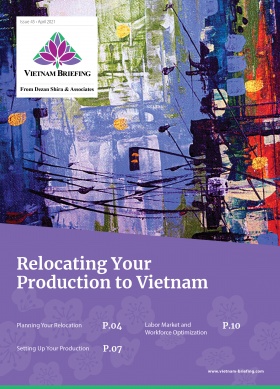Vietnam Issues Guidance on Electronic Tax Payment Transactions: Circular 19
- Vietnam’s Ministry of Finance recently issued Circular 19/2021/TT-BTC on electronic tax payment for Vietnamese citizens.
- The Decree aims at enhancing support for taxpayers, easing the tax payment process so that users will experience a convenient tax payment process.
Recently, Vietnam’s Ministry of Finance (MoF) issued Circular 19/2021/TT-BTC (Circular 19) guiding regulations on electronic tax transactions. The Circular came into effect on May 3.
Taxpayers who conduct e-transactions must have internet access, an email address, a digital signature, or a mobile number. E-tax transactions can be conducted 24/7 including public holidays.
Circular 19 highlights
Circular 19 supplements regulations that allow taxpayers to choose the following methods to perform electronic tax transactions, which are through:
- National Public Service portal, the MoF’s web portal that is connected to the General Department of Taxation’s (GDT) portal;
- Web portals of other qualified state agencies that are connected to GDT’s portal; and
- The electronic payment service of an intermediary payment service provider that is linked to the GDT portal.
To be more specific, the MoF states that taxpayers conducting electronic tax transactions through any of the methods mentioned above are required to register to perform e-tax transactions. This application will follow rules according to the regulations and instructions of each agency or organization through which the taxpayer chooses to perform electronic tax transactions.
Further taxpayers will be granted an additional account by the GDT to perform transactions when using the method through the National Public Service portal and the website of the MoF.
This additional account will be created on the basis of the information that the taxpayer provided when registering through these portals, hence taxpayers will not have to manually register for any changes or additions.
When asked about the primary reason for Circular 19, the MoF mentioned that they issued the Circular to enhance convenience for taxpayers and optimize the efficiency in the tax-paying process.
Moreover, this additional circular will be consistent with the provisions of:
- Decree 61/2018/ND-CP on the implementation of the one-stop-shop mechanism in handling administrative procedures;
- Decree 11/2020/ND-CP on administrative procedures in the aspect of Trade Treasury; and
- Resolution 02/NQ-CP dated January 1, 2019, on continuing to perform the main tasks and solutions to improve the business environment and enhance national competitiveness.
Electronic transactions in tax payment, tax refund, tax exemption
Tax payment
Specifically, regarding electronic transactions in electronic tax payment, the new regulation removes the conditions on the implementation of electronic tax payment for banks that participate in this electronic method. Instead, banks and other organizations providing intermediary payment services that meet the technical standards outlined by the GDT will send a connection request to the GDT, according to provisions of Article 38 of Circular 19.
Tax refund
Regarding electronic transactions in a tax refund, Circular 19 makes amends on the time range when the tax authorities send the ‘notice of receipt’ to taxpayers. To elaborate, this time range is after the tax authority sends the ‘notice of acceptance’ of the electronic tax refund, in cases when the taxpayer requests a tax refund.
Tax exemption/reduction
Regarding electronic transactions in tax exemption and reduction, Circular 19 inputs new regulations on this issue. Accordingly, taxpayers can send a tax exemption or reduction request to tax authorities by either direct submission or electronic method. This circular specifically outlines the process of receiving, processing, and returning results by electronic method for application for tax exemption or reduction.
Government continues on path of digitalization
Through issuing Circular 19 the government demonstrates that they have made efforts in improving the taxation aspect in Vietnam, supporting Vietnamese citizens in tax payments. Moreover, this proves that the taxation system in Vietnam still holds strong opportunities for improvement, as the government seeks ways to enhance e-government operations and digitalization.
About Us
Vietnam Briefing is produced by Dezan Shira & Associates. The firm assists foreign investors throughout Asia from offices across the world, including in Hanoi, Ho Chi Minh City, and Da Nang. Readers may write to vietnam@dezshira.com for more support on doing business in Vietnam.
We also maintain offices or have alliance partners assisting foreign investors in Indonesia, India, Singapore, The Philippines, Malaysia, Thailand, Italy, Germany, and the United States, in addition to practices in Bangladesh and Russia.
- Previous Article Vietnam’s Wine Industry and Opportunities for Australian Investors
- Next Article Q&A: Adopting a China+1 Strategy in ASEAN: Diversifying Supply Chains to Minimize Risks






























